Learning the Japanese language can sometimes feel overwhelming for children who are new to it. However, incorporating fun and interactive activities into their daily lives can make a big difference. Traditional Japanese games are a fantastic way for kids to enjoy themselves and naturally pick up Japanese words, phrases, and cultural nuances.
This post will introduce some simple and enjoyable Japanese games and product recommendations to help children become more familiar with the Japanese language and culture.
Karuta (Card Matching Game)
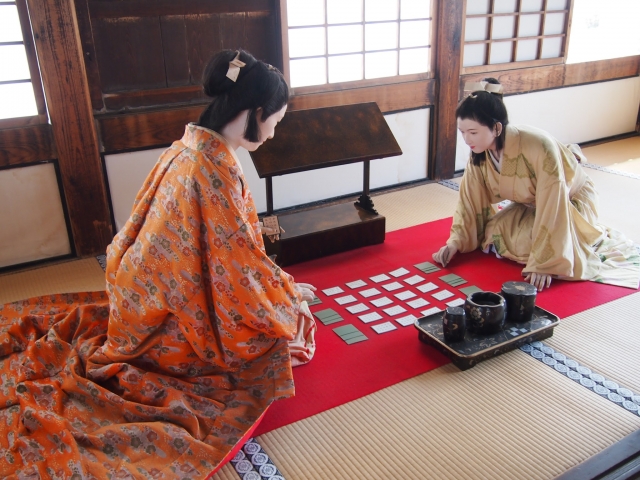
- Overview: Players listen to a phrase read aloud and compete to grab the matching picture card.
- Language Benefits: Connecting spoken words to visual cues helps improve vocabulary and listening comprehension.
- Recommended Products:
- "My Neighbor Totoro Cards"
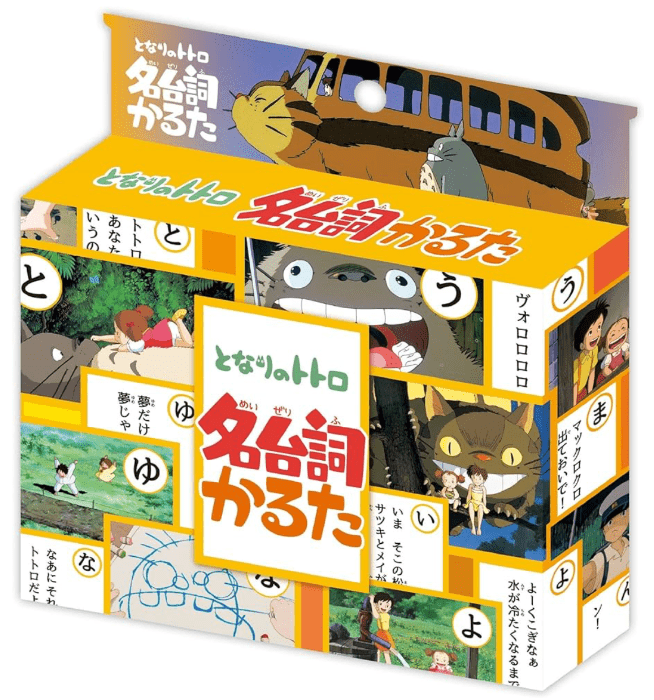
- Animals Carta Card Game
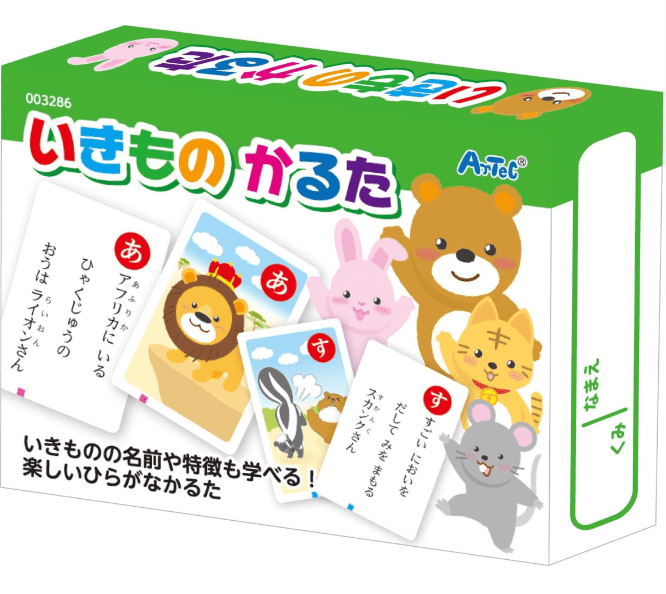
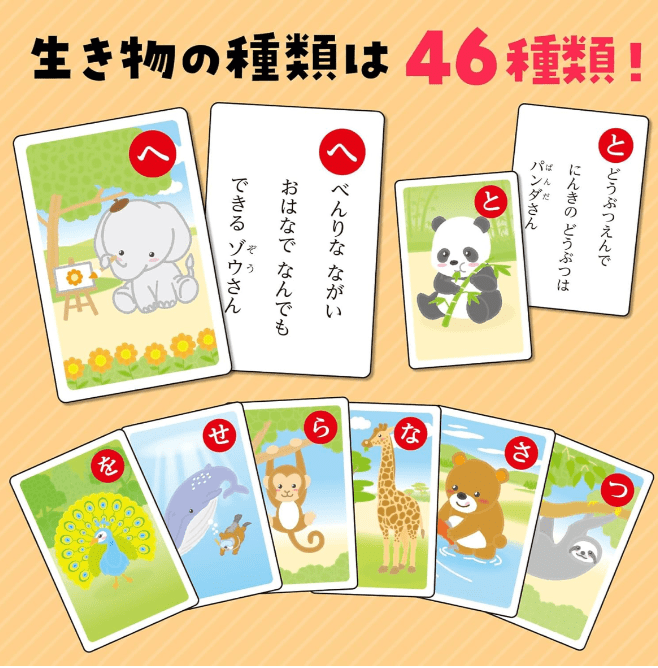
- Children's Seasonal Event Karuta Cards

Simple Rules for Karuta
- Spread all the picture cards (or word cards) on the table or floor.
- One person reads the matching phrase or sentence aloud from the reading cards.
- Players compete to grab the correct picture card. The one who collects the most cards wins!
Phrases for Playing Karuta
| Situation | Japanese | Romaji | English |
|---|---|---|---|
| Touching the wrong card | お手つき! | Otetsuki! | "Wrong card!" |
| Waiting for the next turn | 手は頭の上に乗せてね | Te wa atama no ue ni nosete ne | "Hands on your head!" |
| Grabbing the right card | とった! | Totta! | "Got it!" |
| Tie situation | 同時に取ったらじゃんけん! | Douji ni tottara janken! | "If it’s a tie, do rock-paper-scissors!" |
| Counting the collected cards | 数えるよ | Kazoeru yo | "Let’s count the cards!" |
| Counting numbers | 1つ、2つ、3つ... | Hitotu, Hutatu, Mittsu... | "Number 1, 2, 3..." |
| Expressing victory | やったー! | Yattaa! | "Yay!" |
| Expressing loss | 残念、負けた | Zannen, maketa | "Too bad, I lost!" |
Shiritori (Word Chain Game)

- Overview: A word chain game where each word must start with the last letter (or syllable) of the previous word. For example, "ringo (apple)" → "gorilla (gorilla)" → "ramen (noodles)."
- Language Benefits: Helps kids practice vocabulary, word recall, and pronunciation while thinking creatively.
- Recommended Products:
- Siritori Guruguru Card
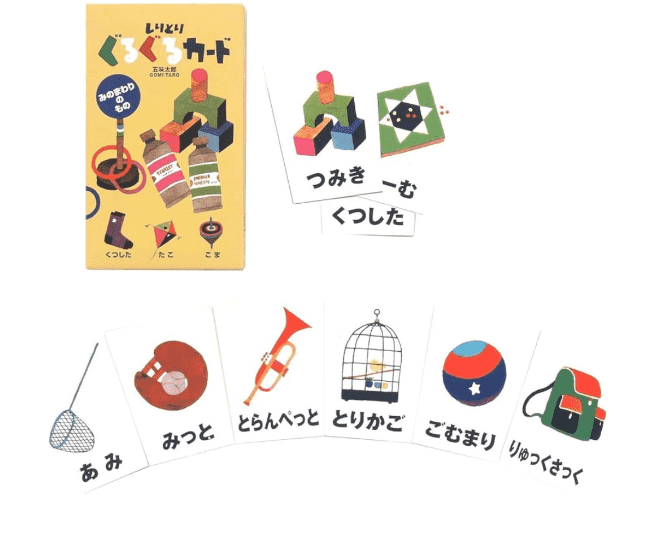

Simple Rules for Shiritori
- Players take turns saying a word that starts with the last letter or syllable of the previous word.
- Example: "りんご (ringo, apple)" → "ごりら (gorira, gorilla)" → "らくだ (rakuda, camel)."
- If a player says a word ending with "ん (n)," they lose the game, as no Japanese words start with "ん."
- If you can't think of a word, you can "pass" your turn.
Phrases for Playing Shiritori
| Situation | Japanese | Romaji | English |
|---|---|---|---|
| Starting the game | しりとり、始めよう! | Shiritori, hajimeyou! | "Let’s start shiritori!" |
| Taking someone’s turn | (名前)さんの番だよ | (Name) San no ban da yo | "It’s your turn!" |
| Not knowing a word | わかりません | Wakarimasen | "I don’t know." |
| Passing a turn | パスしたいです | Pasu shitai desu | "I’d like to pass." |
| Losing due to "ん" | "ん"がついたら負けだよ | "N" ga tsuitara makeda yo | "You lose if it ends with "ん" ! |
Recommended Vocabulary Resources for Beginners
If children struggle to think of words due to a limited vocabulary, try these resources to make learning new words more accessible:
学研 ことば えじてん 新装版 (Gakken Kotoba E JIten)
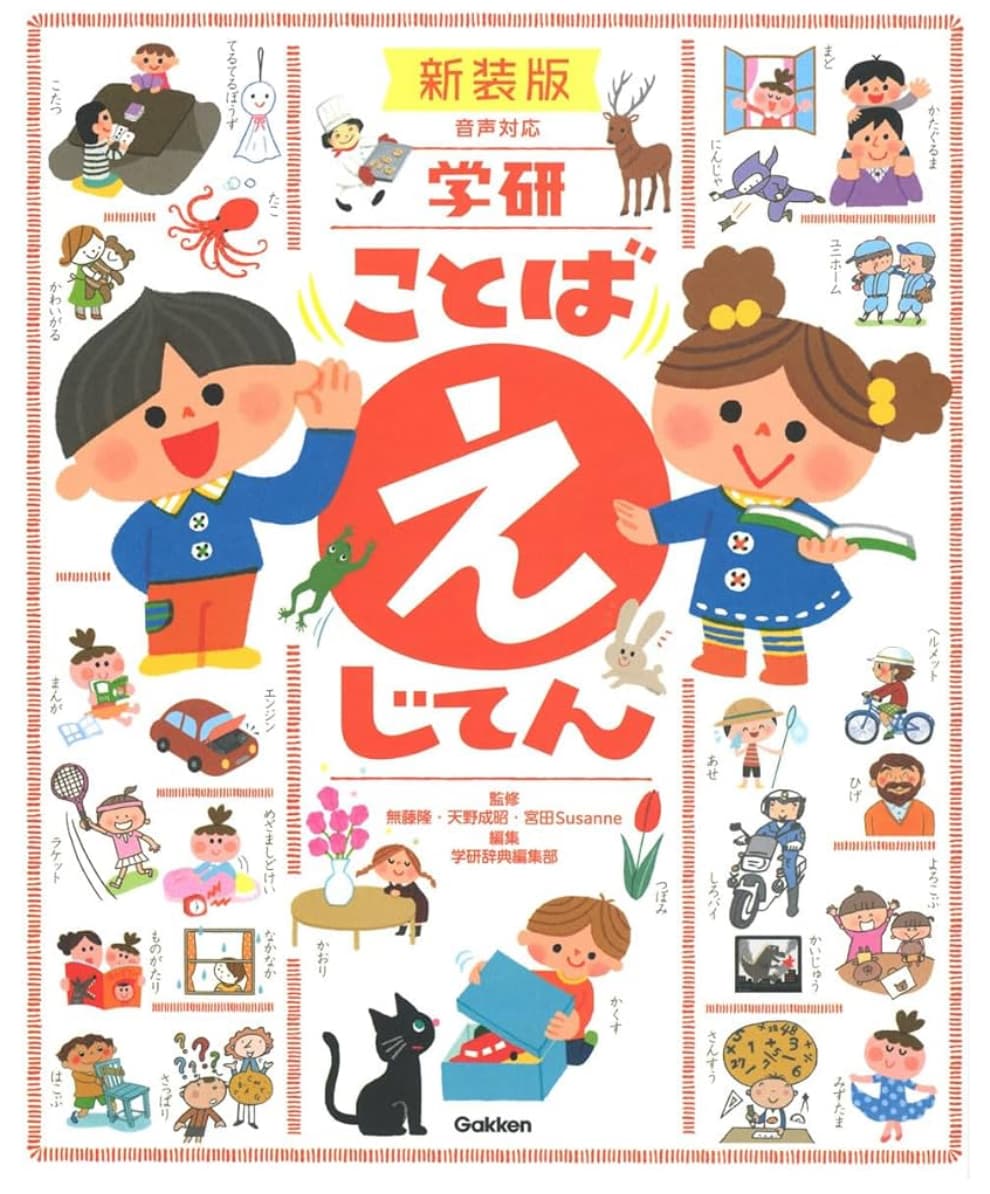
Why These Games Are Effective
Each of these activities combines fun and learning in a way that allows children to absorb Japanese naturally. With clear visuals, repetitive phrases, and engaging movements, kids can build confidence in the language without feeling pressured.
Conclusion
Games like karuta and shiritori are perfect for making Japanese language learning enjoyable and interactive. They help children practice listening, speaking, and building vocabulary in a relaxed and fun environment. By incorporating easy-to-use Japanese phrases and relying on beginner-friendly vocabulary resources, kids can feel more confident and excited about learning Japanese.
Why not gather some friends or family and try these games? Whether you're grabbing karuta cards or chaining words in shiritori, learning Japanese can be a blast!
